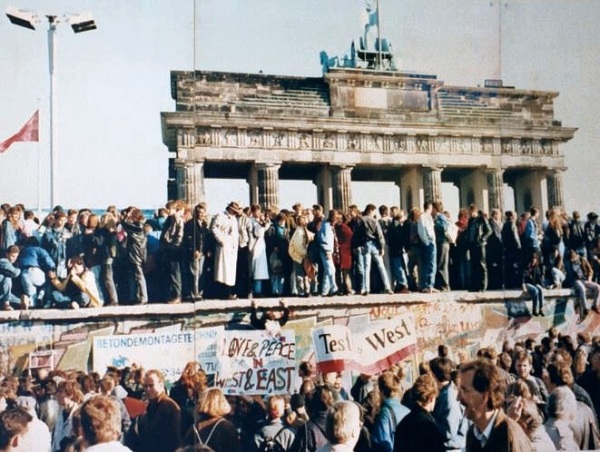NATO’s nostalgia for the Cold War is showing. Ah, the predictability of the enemy, the romanticised spying games, the Orwellian balance of power… There seems to be a strong desire to bring it all back.
According to Dennis Kucinich – Truthdig (Transcend Media Service) “Three Members of Congress Just Reignited the Cold War While No One Was Looking.
“Late Thursday [11 Dec 2014] night, the House of Representatives unanimously passed a far-reaching Russia sanctions bill, a hydra-headed incubator of poisonous conflict. The second provocative anti-Russian legislation in a week, it further polarizes our relations with Russia, helping to cement a Russia-China alliance against Western hegemony, and undermines long-term America’s financial and physical security by handing the national treasury over to war profiteers.
Here’s how the House’s touted “unanimity” was achieved: Under a parliamentary motion termed “unanimous consent,” legislative rules can be suspended and any bill can be called up. If any member of Congress objects, the motion is blocked and the bill dies.
At 10:23:54 p.m. on Thursday, a member rose to ask “unanimous consent” for four committees to be relieved of a Russia sanctions bill. At this point the motion, and the legislation, could have been blocked by a single member who would say “I object.” No one objected, because no one was watching for last-minute bills to be slipped through.
Most of the House and the media had emptied out of the chambers after passage of the $1.1 trillion government spending package.
The Congressional Record will show ONLY THREE of 425 members were present on the floor to consider the sanctions bill. Two of the three feigned objection, creating the legislative equivalent of a ‘time out.’ They entered a few words of support, withdrew their “objections” and the clock resumed.
According to the clerk’s records, once the bill was considered under unanimous consent, it was passed, at 10:23:55 p.m., without objection, in one recorded, time-stamped second, unanimously.”
An interesting analysis of the drive to re-establish Russia as the main enemy, can be heard on UK’s Radio 4 interview to the economist Jeffrey Sacks:
“Jeffrey Sachs argues that many of today’s global problems are hangovers from bad, ungenerous decisions at the end of previous conflicts.
“Professor Sachs is one of the world’s leading economists, and amongst the many governments he has advised over 30 years were Poland and Russia at the end of the Cold War.
In this very personal talk, recorded at McNally Jackson books in New York City, Professor Sachs describes how a stunned Russian Prime Minister, facing economic calamity and desperate for western support, was told instead by western governments that there would be no help forthcoming. And he argues that decisions like this – similar to those taken by the Entente powers at the end of the First World War which sowed the seeds of today’s conflicts in the Middle East – are a large part of the explanation of Russian attitudes today, including in Ukraine.”
This is all very bad news for nuclear disarmament (here is another reason to bring back Russia, as the “war on terror” could not be used to justify nuclear weapons), reductions of the military budget in favour of health and education and any hopes for peace.
There has never been so much need to strengthen the links between ordinary people, that is, grassroots movements from the West, the East, the Middle East, Africa, South America and every corner of the world that may be in the future presented as ‘the enemy’, to step up the pressure on governments to stop fragmenting humanity into ‘us and them’. This is the true meaning of nonviolence as the methodology of action for a New Humanism, to reach out to others who may not share my language, my culture or my lifestyle and to feel together our shared humanity.










